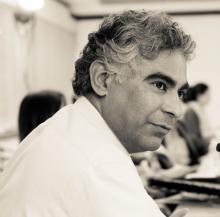Urban and Open Innovation
ROOM: Microcine
Innovation Session 2
Organized by: METROPOLIS and Buenos Aires City Government
Open innovation is a tool that is widely used by companies and businesses around the world, but in actual fact its most significant impact may derive from this approach being adopted by local authorities. Open innovation offers the potential to improve citizens’ quality of life, to achieve changes and efficiency at local authorities, while also encouraging citizens and local businesses to participate more actively. In the current changing circumstances in which we find ourselves, it is important to be one step ahead of change, providing solutions and initiatives. With regard to cities, this requires imagination, creativity, and lateral thinking. It requires innovation applied to urban challenges, or in other words, urban innovation.
The session was structured through speeches followed by round-table discussions where participants had the opportunity to debate certain issues raised by various specialists in urban management. The audience was made up of civil servants from member cities of METROPOLIS, academics, and members of NGOs on public policies.
Sunil Dubey, Professor from the University of Sydney, began the working session by introducing the subject of urban and open innovation, with references to experiences and challenges. Subsequently, Alvaro García Resta, architect in charge of the Urban Innovation Team in the City of Buenos Aires, spoke about the subject of Urban Innovation; Rudi Borrmann, Director-General of Innovation and Open Government in the Government of the City of Buenos Aires, spoke about Open Innovation; and Cecilia Lucca, Coordinator of the Innovation and Creativity Table of the Government of the City of Buenos Aires, spoke about the administration of innovation within local authorities.
Following this, the participants were divided into groups in order to discuss various problems and questions relating to urban and open innovation. The conclusions and challenges reported from these debates focussed on aspects such as the importance of connecting innovative ideas through virtual communities, the generation of innovation hubs, the value of planning and the generation of projects, the increase of budgetary funds, and the tools of participatory budgets. Emphasis was also placed on the creation of contents in collaborative manner, which encourage the exchange of information and online knowledge management.
The participants likewise identified some of the challenges to urban efficiency, such as the focus on sustainability, better use of public spaces, the optimization of transport, universal access to basic services, the use of new technologies, and the creation of employment and opportunities. Furthermore, there was interest in enriching the identity and role of citizens, and active participation in local areas and communities, and a return to what is collective, with value being placed on the dissemination and socialization of initiatives through social media.
Schedule
1.30 p.m. – Opening and welcome
1.35 p.m. – Introduction to the theme by the expert. Problems involved
1.55 p.m. – Presentation of the methodology and debate topics
2.00 p.m. – Start of the group discussions
2.30 p.m. – Summary of the group work
2.40 p.m. – Final presentation of conclusions by each group (1 min per group, presentation of experiences, good practices, examples, innovative ideas, etc.)
3.00 p.m. – Close and conclusions by the session leader








